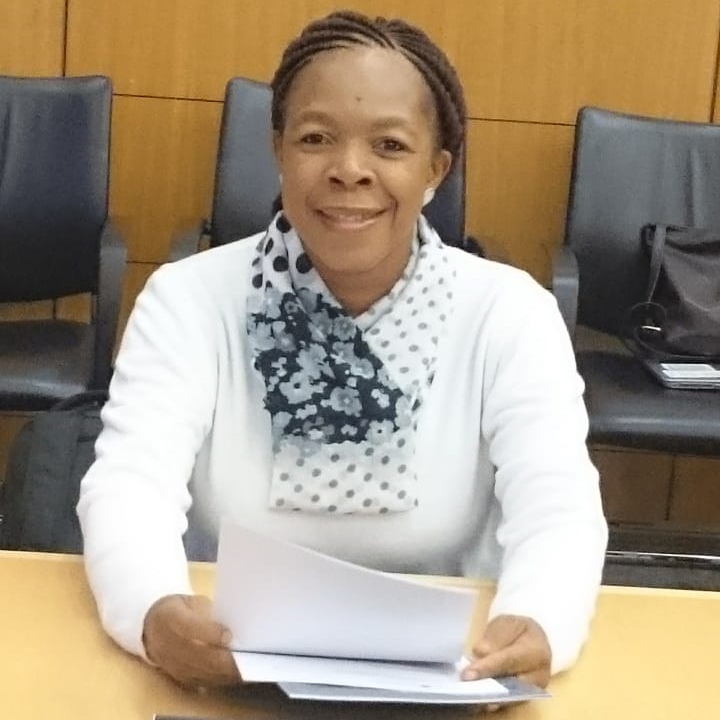
The Global Teachers Institute held its 4th graduation ceremony on the 5th of October during an inspiring hybrid event that involved parents, national and provincial government education officials, funders, current teacher interns, its alumni and the graduates themselves. GTI’s Executive Director, Dr. Fay Hodza, highlighted that the 2022 graduation ceremony was deliberately scheduled to coincide with World Teachers Day as a way of symbolically ushering the newly qualified teachers into the profession as full time teachers. He also said that GTI fully agrees with this year’s World Teachers’ Day theme – “the transformation of education begins with teachers”. Indeed, the COVID-19 crisis revealed that teachers are the engines at the heart of our education systems. Without their work, it is impossible to provide inclusive, equitable and quality education to every learner. Teachers are also essential to pandemic recovery and preparing learners for the unpredictable future.
The importance of this theme was further reiterated by the newly appointed Initial Teacher Education (ITE) Director at the Department of Basic Education (DBE), Ms. Lala Maje who delivered this year’s keynote address. She congratulated GTI for being at the forefront of writing a new story for education in South Africa. She encouraged the new graduates to take their profession seriously and contribute to the improvement of children’s learning experiences in public schools.
Ms Lala Maje, Initial Teacher Education (ITE) Director
at the Department of Basic Education (DBE)
At this graduation ceremony, GTI released 20 graduates into the world as agents of transformation. 16 of them were young women all aged below 25. They are extraordinary. During COVID-induced lockdowns, these strong, confident Future Leaders, a name we give to all our current and graduate teacher interns, coped with writing 4000 word essays on their cellphones because they suddenly did not have access to computers. They dealt with the trauma of seeing their families, colleagues and friends getting sick and some dying because of COVID-19. Even though they were struggling themselves, these Future Leaders contributed their time and money to start their feeding schemes to ensure that the children they teach would not go hungry.
While children in more privileged schools were receiving lessons online, our children in less resourced schools were asked to wait until lockdown was over, losing days, weeks, months of learning. Despite these limitations, our Future Leaders had the courage to live the vision of GTI which is to facilitate learning that creates a just, equitable and inclusive world. They did not accept this new challenging status quo. They understood that they had the responsibility to be change makers, they realized that the change had to begin with them. These graduates were some of the first to teach using Whatsapp, when teachers around them said it could not be done. They learnt to teach using the technology they had access to and helped their mentors to develop these skills as well. All this points to the pivotal role that resourceful and creative methodology plays in the education process.
Graduates from Left to Right: (Top Row) Eunice Amponsah, Zuko Kama, Botshelo Kungoane, Phumzile Leshaba, Michaela Ludwig, Thabang Makgate, Themi Mamushi, Nompendulo Mashele, Musa Masombuka, Ayanda Mgoduka | (Bottom Row) Mahlatse Mohlala, Thabiso Mona, Nompilo Msimango, Mpho Ndou, Lethabo Nthite, Thandiwe Nyembe, Fikile Radebe, Disree Sefoka, Billy Selala, Nosipho Zondi
John Gilmour, GTI founder and chairperson of the board, stressed the point that transformation isn’t a destination but a continual process of rethinking, in response to a world that is changing every day. Commenting on Mr. Gilmour’s remarks, one of the graduates who spoke during the graduation noted that she learnt to be mentally agile as a GTI intern. In other words, she developed the ability to take in change and find the best course of action to move forward despite unpredictable events. For her, mental agility is not about having all the answers – but about being confident that you can figure out a new way of doing things to get where you want to go.
This idea of mental agility was expanded upon by Juan Pablo Careres, our Teach with Africa fellow from San Francisco, and Themi Mamushi, one of our graduates, when they discussed the burning issues that face South Africa and the world beyond in an engaging fireside chat. They encouraged the participants to see education as being similar to how GPS works. You have a destination to guide you on this wonderful journey and you can plan, but sometimes things don’t go the way you plan. Like the way GPS works, you can recalculate, adapt and try a new ‘route’ to a challenge of learning and knowledge. Therefore, as much as there are good older ways of doing things, which we shouldn’t necessarily discard, teachers must be willing to experiment and take risks with new ways. That creates a culture of learning that is fresh and dynamic – for both the teacher and the students.
So a key element of the new teacher is to embrace change and innovation as givens that must continually be applied. That ensures that education is transformed into something that is always stimulating and relevant to needs of the time and to the needs of the students. This is at the heart of the GTI Future Leaders Programme.
GTI is grateful for the support that it received from the Department of Basic Education and all its local and international funders. In 2023, we intend to consolidate the gains made so far and expand the programme into the Northern Cape province. We invite current and new funders to join the movement by donating to our Fund the Future campaign by clicking here or on the banner below:



